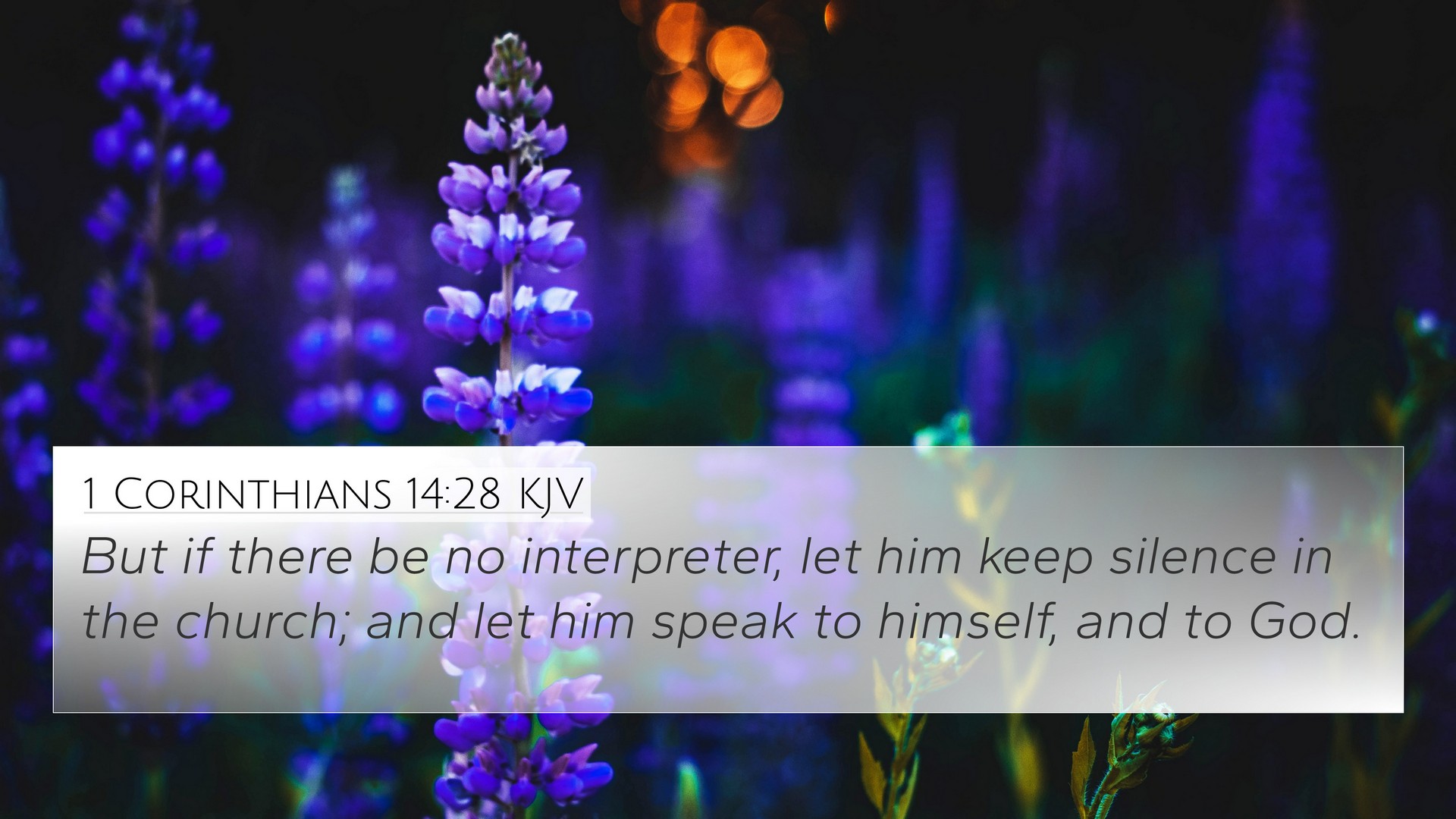Understanding 1 Corinthians 14:28
1 Corinthians 14:28 states: "But if there is no interpreter, he should remain silent in the church and speak to himself and to God." This verse is part of Paul's instruction on the use of tongues and the operation of spiritual gifts in the church. Here, the Apostle emphasizes the importance of order and edification within the worship assembly. Below, we summarize insights from public domain commentaries to provide a deeper understanding of this verse.
Verse Meaning and Interpretation
This passage illustrates the principle of effective communication and the necessity for understanding in communal worship. When someone speaks in tongues (a language not understood by the common people) without an interpreter, their speech benefits neither the church nor the individual worshippers present. In invoking the need for an interpreter, Paul insists on worship that builds up the faith of the congregation.
Insights from Commentaries
-
Matthew Henry:
Henry emphasizes the priority of understanding and edification in the church. He stresses that speaking in tongues without interpretation serves no constructive purpose and may lead to confusion rather than spiritual growth.
-
Albert Barnes:
Barnes points out that the directive to remain silent underscores the principle of God being a God of order. He notes that public worship should promote clarity and comprehension so that all can be enriched in their faith.
-
Adam Clarke:
Clarke discusses the implications of secrecy in speaking to God versus speaking in public. He suggests that while personal edification through tongues is valid, the collective welfare of the church must take precedence.
Related Bible Cross-References
In exploring the themes of order, silence, and edification in worship, several cross-referenced Bible verses provide additional insights:
- 1 Corinthians 14:19 - "But in the church, I would rather speak five intelligible words to instruct others than ten thousand words in a tongue."
- 1 Corinthians 14:33 - "For God is not a God of disorder but of peace." This reinforces the concept of order in worship.
- 1 Peter 4:11 - "If anyone speaks, they should do so as one who speaks the very words of God." This verse highlights the responsibility of speakers in church settings.
- Romans 14:19 - "Let us therefore make every effort to do what leads to peace and to mutual edification." Paul encourages believers to prioritize the peace and growth of the congregation.
- 1 Corinthians 12:7 - "Now to each one the manifestation of the Spirit is given for the common good." This points to the purpose of spiritual gifts.
- Acts 2:4 - "All of them were filled with the Holy Spirit and began to speak in other tongues as the Spirit enabled them." This showcases the original purpose of speaking in tongues during the Pentecost experience.
- Colossians 3:16 - "Let the message of Christ dwell among you richly, as you teach and admonish one another with all wisdom." This reinforces collective growth and understanding in worship settings.
Thematic Connections
The verse warrants a comparative Bible verse analysis to underline the importance of understanding in corporate settings. Various tools for Bible cross-referencing can assist readers in discovering how this verse connects to other scriptural texts, promoting a holistic view of worship dynamics.
Utilizing Bible Cross-Reference Tools
For those interested in deeper studies, utilizing a Bible concordance or cross-reference Bible study guide can facilitate the discovery of connections between this verse and broader biblical themes. Cross-referencing Bible study methods provide insights into how similar admonitions appear throughout scripture, allowing for a comprehensive view of the topic.
Conclusion
In conclusion, 1 Corinthians 14:28 serves as a vital reminder of the need for orderly and edifying worship. By connecting this verse to others, believers gain a clearer picture of God's desire for His church to operate in love, clarity, and mutual edification. Cross-referencing these texts enriches understanding and reflects the importance of being mindful of others in spiritual gatherings.


